The Daniel K. Inouye Asia-Pacific Center for Security Studies (DKI APCSS) co-sponsored a first-ever four day Mobile Asia-Pacific Orientation Course (MAPOC) held outside U. S. borders Sept. 12-15 in Seoul. The course was co-sponsored by United States Forces Korea (USFK) and promoted critical thinking related to the increasingly complex Indo-Asia-Pacific security dynamics.
Eighty-seven Fellows completed the four-day course: 52 from USFK, 13 from United States Forces Japan (USFJ), and 22 international Fellows from 10 countries to include eight from Korea, four from Japan, two from Australia, two from New Zealand, and one each from Colombia, Italy, Poland (Charge D’Affaires), Sweden (Member of the Neutral Nation Super visory Committee and former Chief of Navy), Switzerland, and the United Kingdom. Seventeen percent of the class was female.
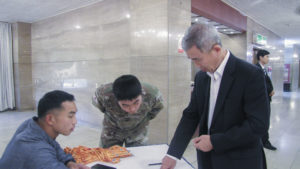
DKI APCSS Alumni Deputy Chief Maj. Jim Wang assists MAPOC Fellows.
This “Road Show” course also focused on building greater strategic awareness among security practitioners for enhancing strategic stability among the major powers, managing the global commons, and considering approaches to manage traditional and non-traditional security challenges – all objectives aligned with Office of Secretary of Defense (OSD) Policy.
USFK Commander, Gen. Vincent Brooks gave generously of his time in opening the course with an extended interactive discussion about the security situation on the Korean peninsula. This provided Fellows with insight into the thoughts and concerns of a senior commander.
The Korea National Defense University joined the DKI APCSS faculty team to present an elective entitled “Korean Perspectives of U.S.-ROK Relations.” This elective had the second highest attendance of all the electives, and was very well received by the Fellows, according to survey results.
End of course surveys reflected that this course significantly deepened Fellows understanding of the security dynamics on the Korean Peninsula and deepened their professional networks with end of course polling indicating 59% of the Fellows made at least four new professional contacts, while an additional 18% made seven or more new contacts. These contacts are essential to effectively addressing the complex international security threats we all face.
The achieved outcomes were
• Increased understanding of the Indo-Asia-Pacific cultures, histories, politics, economies, national identities, and geopolitical considerations underpinning national behaviors and regional interactions.
• Expanded interagency security practitioner networks and broadened opportunities for cross- institutional collaboration.
• Enhanced understanding of regional perspectives of the United States and U.S. policy.
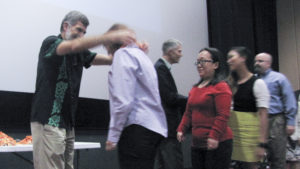
Dr. WIlliam Wieninger presents each Fellow with a golden Lanyard, which represents Alumni status during the commencement ceremony.
DKI APCSS offers APOC in-residence three times this year and this is the first of two iterations of MAPOC offered in CY 2017. This participant-centered experience focuses on U.S. security practitioners, ideally early in their Indo-Asia-Pacific-oriented tours, and allows Fellows to develop their knowledge and networks with regional counterparts.
-END-


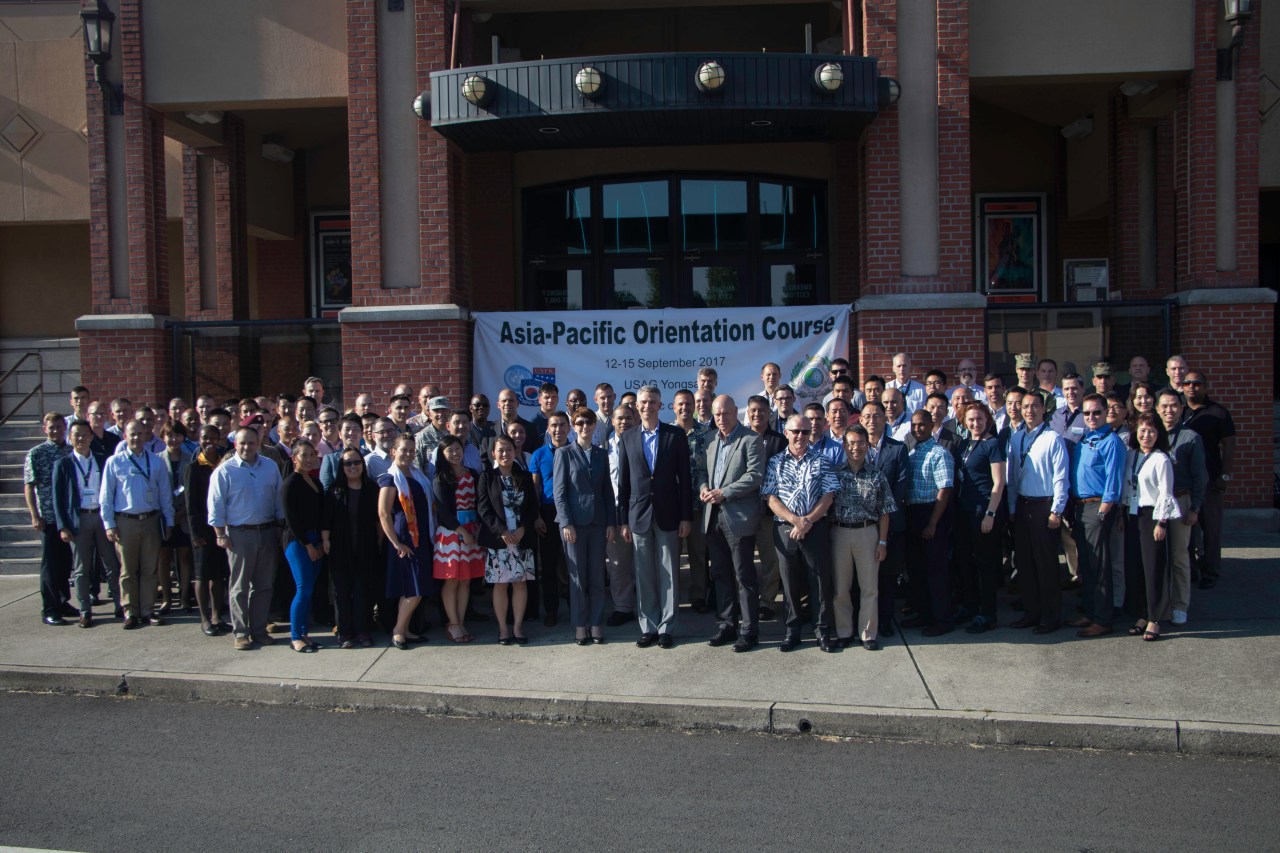
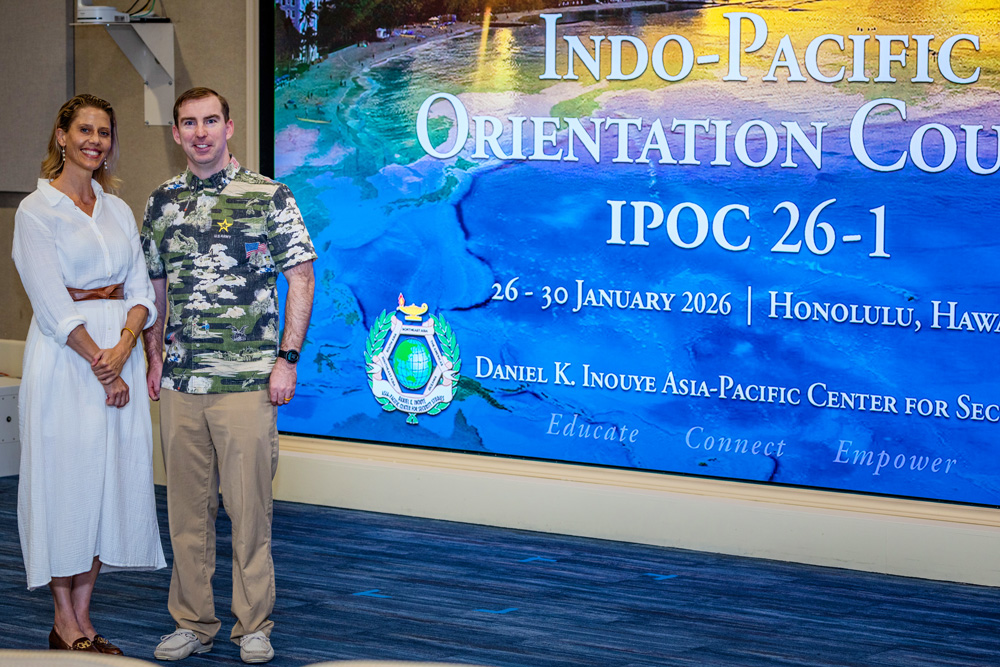
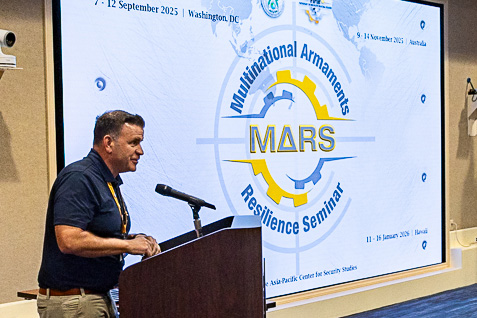
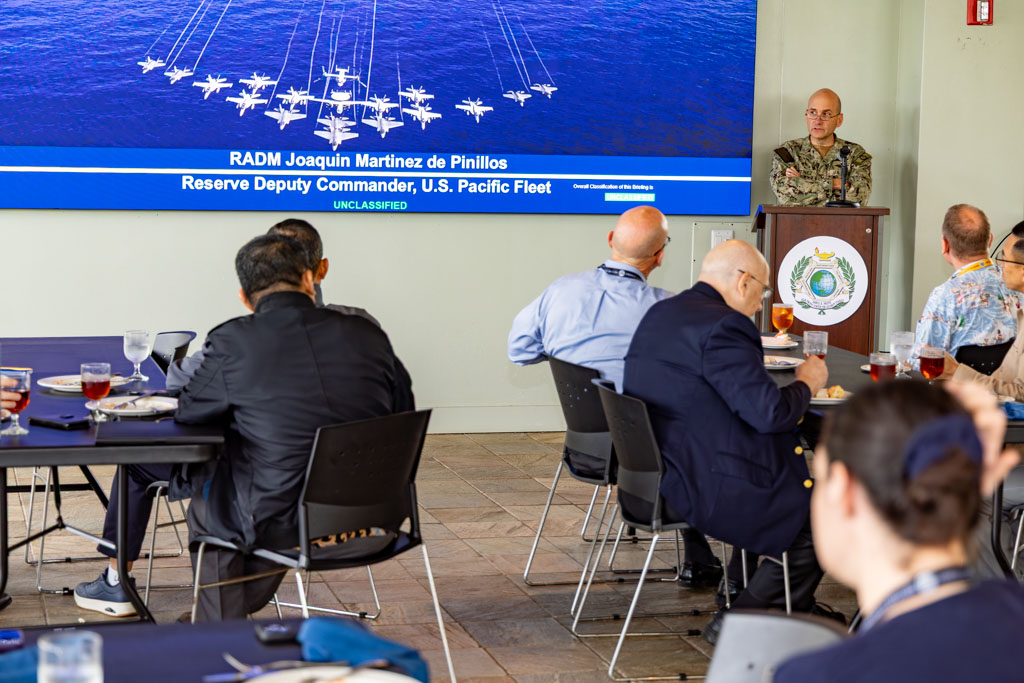




Leave A Comment